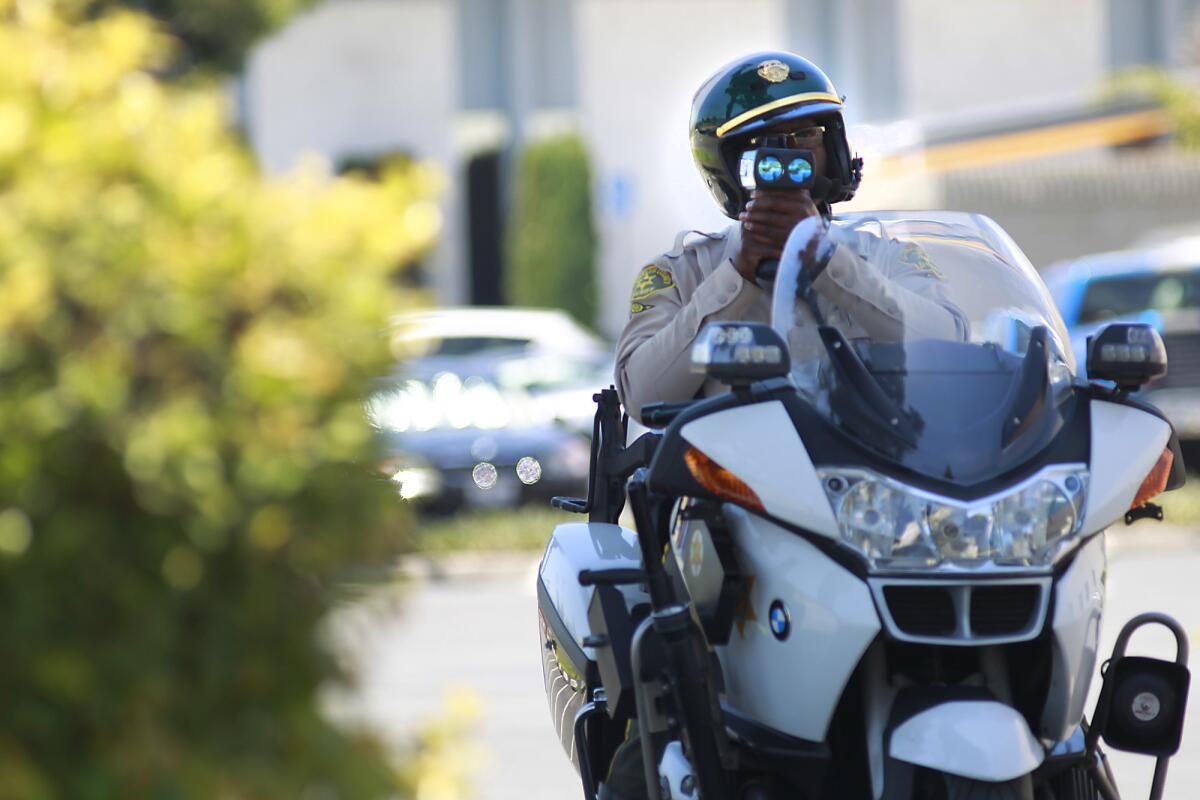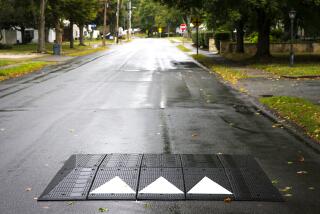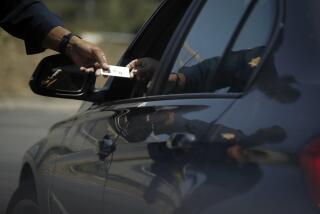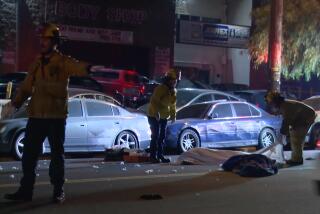California’s traffic fines don’t fit the crime

I’ve always disliked red-light cameras. Not because I like it when people run red lights, but because they are unnecessarily punitive and, I suspect, were conceived as little more than money-making machines for local governments.
If cities want to make intersections where people run red lights safer, they can cheaply and easily lengthen yellow lights or delay the green light for cross traffic. Also, most of the tickets produced from the cameras are issued for not coming to a complete stop before making a right turn on red, hardly as dangerous as blowing through an intersection.
Worse, the cost of that infraction is higher than seems reasonable for the offense -- about $500. That’s a hard check to write even for people with well-paying jobs. For a poor family, however, that’s the monthly food budget, or maybe even rent.
A report by the U.S. Department of Justice found that, among other misdeeds, the police in Ferguson, Mo., were using traffic stops and minor citations to extreme measures, essentially criminalizing poor people and setting the stage for the blowup after a police officer fatally shot 18-year-old Michael Brown last summer.
Turns out, California has a similar problem. A new report out this week called “Not Just a Ferguson Problem,” by a coalition of legal aid groups, concluded that increased fines for minor traffic offenses coupled with reduced court access have shackled millions of people into a cycle of poverty and punishment.
The report did not get into overpolicing, which has been alleged in Ferguson, Mo., and in North Charleston, S.C., where a police officer was arrested this week for murder after shooting an unarmed man during a minor traffic stop.
Red-light camera fees aren’t the only infractions that have big price tags, it turns out. They all do. According to the report, the average traffic ticket has skyrocketed thanks to state legislation jacking up fees to backfill court budget holes. As a result, a $100 ticket is $490 with all the add-ons. If you miss a deadline for paying that fine, just once, it jumps to $815.
Not surprisingly, millions of people simply don’t pay. And then they lose their driver’s licenses. And then they have no way to get to work or school. And then they get poorer. It’s a nasty cycle.
More than 4 million Californians have lost their driver’s licenses for failing to appear in court or pay their fines, according to the report. And the state isn’t benefitting either it seems, having priced itself out of the market. The report identified $10 billion in uncollected court-ordered debt. Even someone who is not an economist can tell you that a price tag set too high can reduce revenue.
Gov. Jerry Brown and state Sen. Bob Hertzberg (D-Van Nuys) have proposed ways to help people who have lost their license due to an inability to pay fines. That’s OK, but how about legislators look at undoing the fee structure that resulted in this mess? I’d love to see a bill reducing the fees added to tickets.
Nobody wants to lose a license and most will try to pay a ticket if it’s within their means. A hundred bucks for crawling through a right turn might hurt the wallet, but it’s reasonable.
Follow me on Twitter @marielgarzaLAT
More to Read
A cure for the common opinion
Get thought-provoking perspectives with our weekly newsletter.
You may occasionally receive promotional content from the Los Angeles Times.







